PAKISTANI ACTRESS MAHIRA KHAN TALKS VERNA AND PROMOTING WOMEN’S RIGHTS
by ASJAD NAZIR
ACTRESS Mahira Khan has not only become a huge international star but also a powerful Pakistani role model who is inspiring women globally with her girl power-led approach to work and everyday life.
With her newly released film Verna , Mahira continues her approach of inspiring others through her art. She has teamed up with acclaimed director Shoaib Mansoor, who previously delivered blockbusters Khuda Kay Liye and Bol , for a gripping drama about a rape survivor fighting for justice.
One of the most anticipated Pakistani movie of recent years, Verna is expected to clock up big numbers and open up an important debate about women’s rights. Eastern Eye caught up with Mahira to talk about Ver na , women’s rights, inspirations and more...
You are very much in-demand; what did you like about Verna?
First and foremost it was Shoaib saab. As you know, I made by debut with him in Bol . So just to get a call from him after six years was amazing. We have kind of stayed in touch, but he is not someone who stays in touch with anybody. So for him to reach out to me and say I have this and want you to be the protagonist of my film meant a lot to me. Then when I read the script, I knew that I had to do it. Everything else that I was considering I sort of put aside and gave my all to this. So mainly it was the combination of Shoaib saab and the script.
The last time you worked with him you were a debutante and now you are a huge star. How did the working dynamic with Shoaib Mansoor change?
Like you said, the first time I was a newcomer. I was a baby who was roaming around with a baby because (my son) Azlaan was a few months old. I was so unaware and didn’t know where the camera was. (Laughs) Even now he tells me you still don’t know where the camera is. Most actors know where the lights and camera are, but I forget.
But what was amazing this time was I had this lead part in his film so the directions were different. I had my own experiences, so he found me different. I would ask him so many more questions. We would joke around and the relationship evolved into a more comfortable one with me telling him so many more things.
I would sit with him on the script. So it was a different relationship. Any success that has come my way didn’t play a part in any way.
Tell us about the story and character you play...
The story is about a woman who has been wronged. She has been sexually abused and is a rape survivor. This girl is someone you find out from the get-go won’t take wrongdoing lying down. It’s about what happens to someone who is already a fearless, educated girl who is wronged. She is almost like an activist, so if she weren’t a teacher that is what I would look at her as. So the journey is of this wronged girl and how she decides to fight her way through it.
It looks like an emotionally demanding role. Did it affect you mentally?
I would agree with you Asjad that it is an emotionally demanding movie. I don’t know if it affected me mentally. I feel that it did drain me. There were times I would feel tired or exhausted.
I would think why am I feeling like this and would realise it is because I am playing a heavy part. Even though it is one of the most serious films I have done, it was on one of the most non serious sets I have been on
What do you mean?
Behind the scenes we were constantly laughing. I would be laughing and then get called in to do a serious scene. All the scenes were important and I would have to quickly get into character.
What helped me was a great cast and crew. It was mostly young people working on their first film. They helped me not to take it too seriously.
Are you hoping Verna opens up a debate?
Yes, and that is something all of Shoaib Mansoor’s films do. By the time you leave the cinemas, you are talking about it and debating it. That will especially happen with this film. The ending will leave room for a lot of debate because it isn’t a regular one.
Even when I read the script, there was a lot of debate I had with Shoaib saab. So I can imagine people will leave the cinemas talking about it.
This film shines a light on women’s rights, but what more can be done in Pakistan with that issue?
Well, a lot can be done. And a lot is being done. I have met several women who have joined forces with us on the promotion of this film, who are doing a lot. When you meet these people, you realise the kind of work people are doing.
I met Dr Fouzia Saeed and her sister. They have been working for the last 20 years and you haven’t heard about them. They haven’t come into the spotlight. You realise there is a lot of people out there doing the groundwork for women’s rights or for women who are abused on a daily basis or don’t understand their rights.
Is women not understanding their rights the biggest problem?
Yes, I think the number one thing first and foremost that can be done is to create awareness. Until you are aware of the basic rights we have, you are not going to be able to fight for yourself because you don’t have that awareness. I think slowly but surely the narrative for women in Pakistan is changing.
How much of a role do men need to play in the fight for women’s rights?
They have a very important role and have stepped up. I see it all the time. In the case of Khadija Siddiqi, which was a very famous case in Pakistan this year, I found out through a male activist and got her number. We all got together and I spoke out about it.
So often when we talk about women’s rights, we unfortunately separate men out of it. Including men is the most important thing we can do because together we have to fight for one another.
What message would you give women going through struggles?
They will take whatever message they want from the movie, but from me to the women who are going through struggles I think it is important for them to understand they do not need to think that anybody or anything should define them.
Secondly, they should be aware that they have rights and fighting for them is not wrong. It is something they deserve. Simple basic human rights are what women and men deserve. Abuse is against humanity.
Believe me, in researching for this role I can’t tell you what I read and it would blow my mind. Everyone is just five minutes away from being aware. I got onto a forum and found out all this is happening. I was not previously aware. So it’s important they educate themselves, go out there and ask for their rights because they deserve it.
You are an inspirational woman, but what inspires you?
It might sound cliché, but everything is constantly inspiring me. Then there are days that nothing inspires me. But most days I am constantly inspired by everything around me.
I am inquisitive and love talking to everyone. I get told all the time to stop talking to everybody. For a day I’ll take that advice, but get bored because I feel the best thing we can do is just connect. So connecting ultimately inspires me.





 Lunchbox is a powerful one-woman show that tackles themes of identity, race, bullying and belongingInstagram/ lubnakerr
Lunchbox is a powerful one-woman show that tackles themes of identity, race, bullying and belongingInstagram/ lubnakerr She says, ''do not assume you know what is going on in people’s lives behind closed doors''Instagram/ lubnakerr
She says, ''do not assume you know what is going on in people’s lives behind closed doors''Instagram/ lubnakerr








 He says "immigrants are the lifeblood of this country"Instagram/ itsmetawseef
He says "immigrants are the lifeblood of this country"Instagram/ itsmetawseef This book is, in a way, a love letter to how they raised meInstagram/ itsmetawseef
This book is, in a way, a love letter to how they raised meInstagram/ itsmetawseef
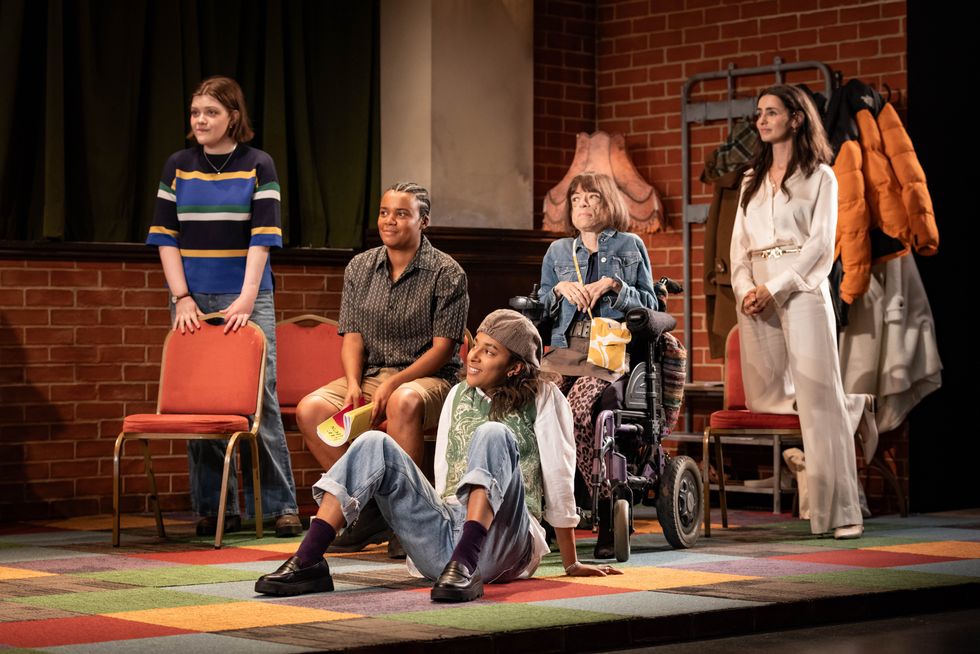 The crew of The Ministry of Lesbian Affairs
The crew of The Ministry of Lesbian Affairs
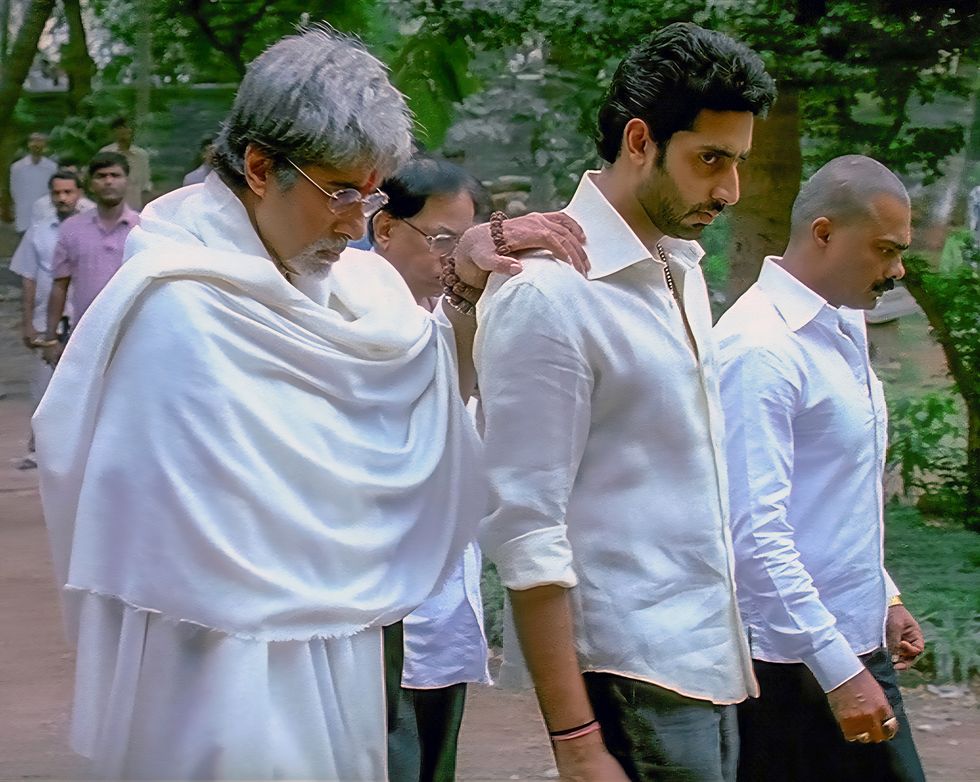 A still from Sarkar, inspired by 'The Godfather' and rooted in Indian politicsIndia Glitz
A still from Sarkar, inspired by 'The Godfather' and rooted in Indian politicsIndia Glitz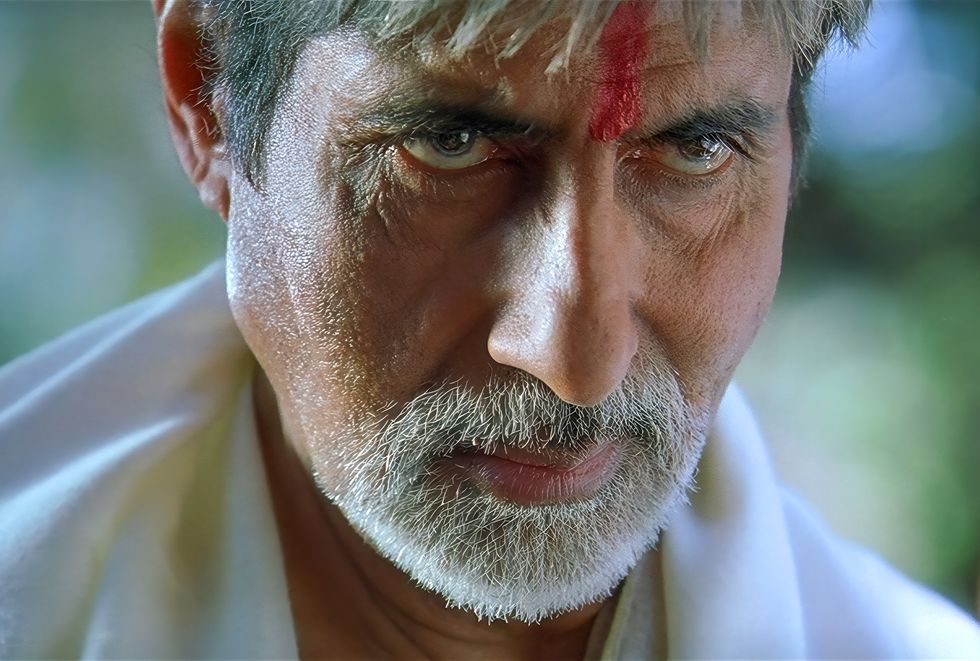 Sarkar became a landmark gangster film in Indian cinemaIndia Glitz
Sarkar became a landmark gangster film in Indian cinemaIndia Glitz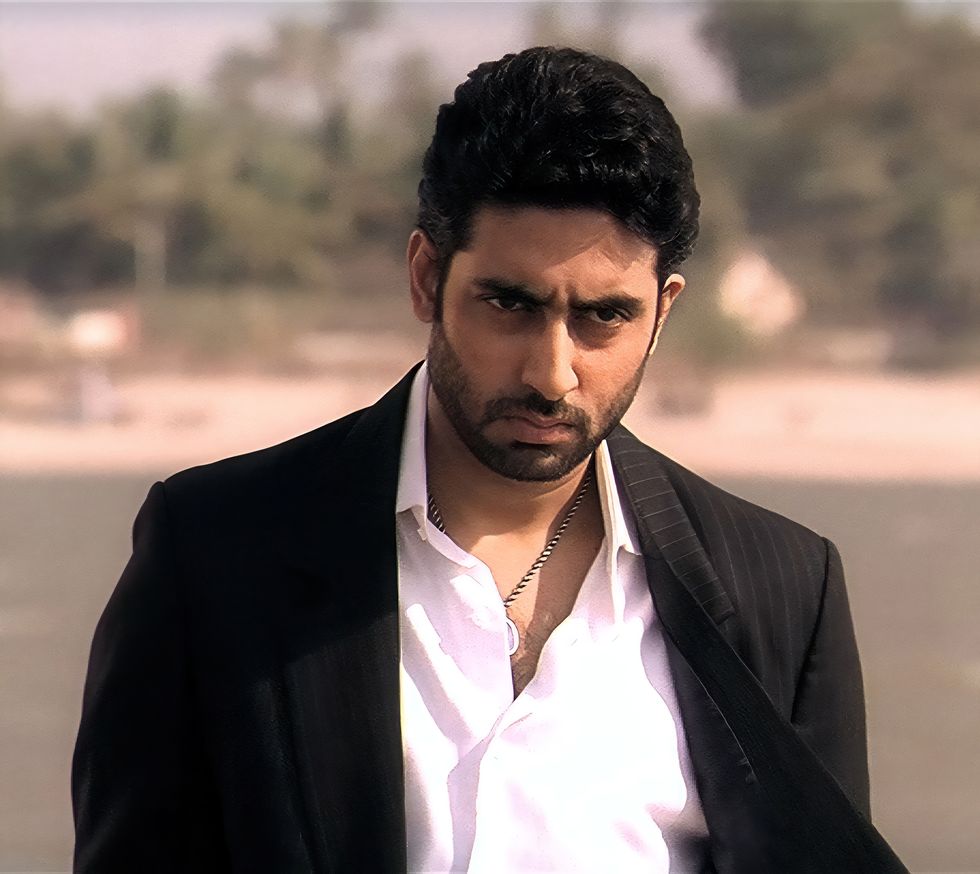 The film introduced a uniquely Indian take on the mafia genreRotten Tomatoes
The film introduced a uniquely Indian take on the mafia genreRotten Tomatoes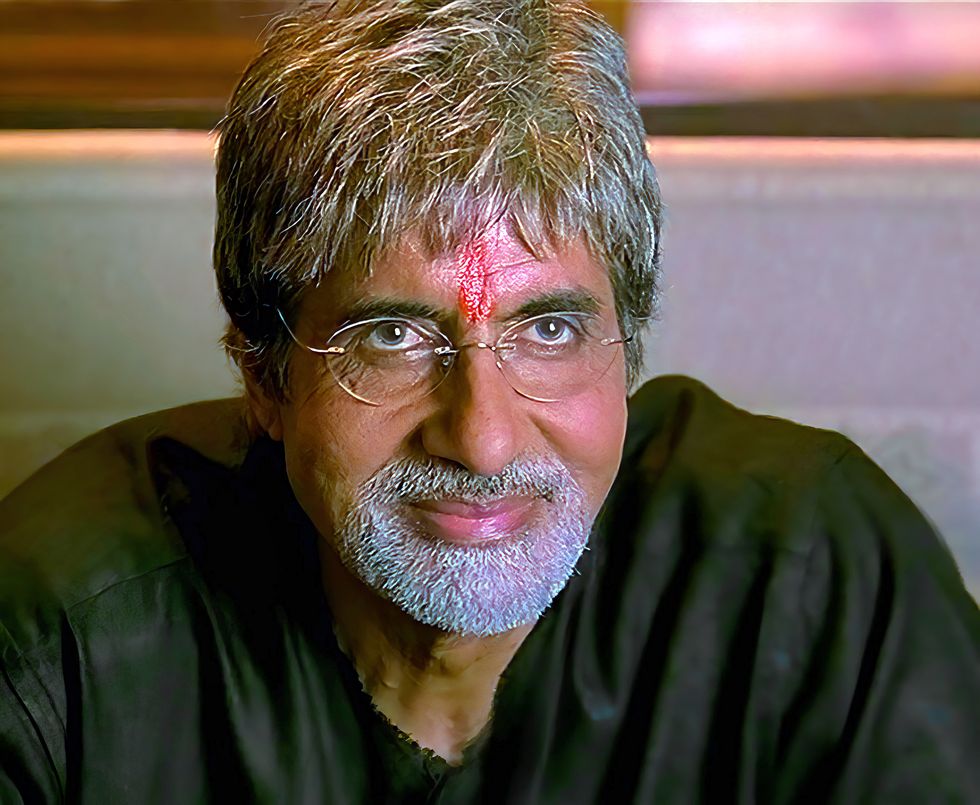 Set in Mumbai, Sarkar portrayed the dark world of parallel justiceRotten Tomatoes
Set in Mumbai, Sarkar portrayed the dark world of parallel justiceRotten Tomatoes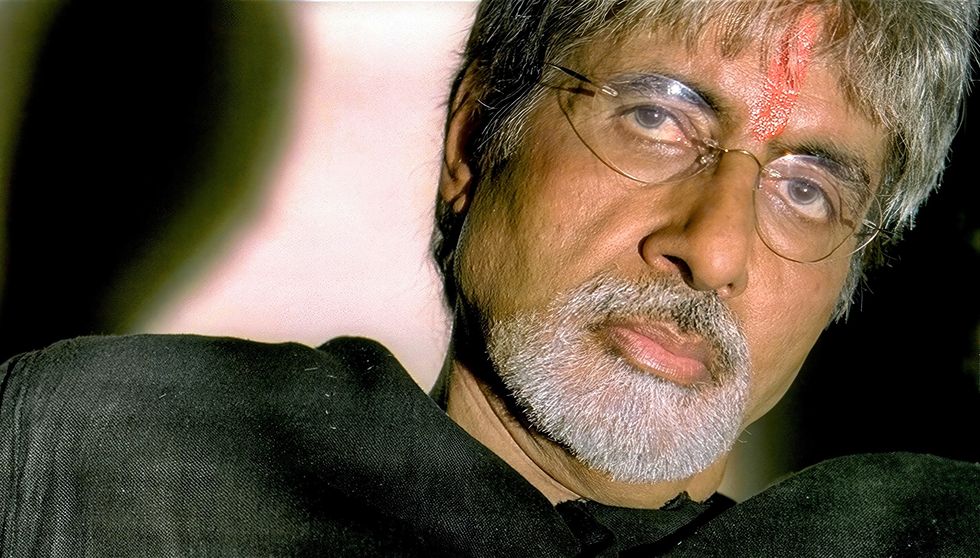 Ram Gopal Varma’s Sarkar marked 20 years of influence and acclaimIMDb
Ram Gopal Varma’s Sarkar marked 20 years of influence and acclaimIMDb
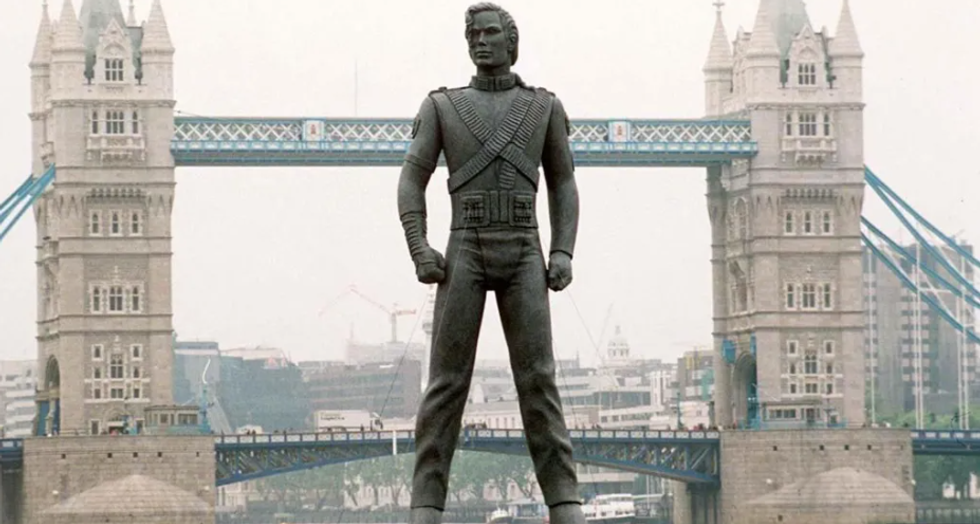 The statues were the product of a transatlantic effortGetty Iamges
The statues were the product of a transatlantic effortGetty Iamges